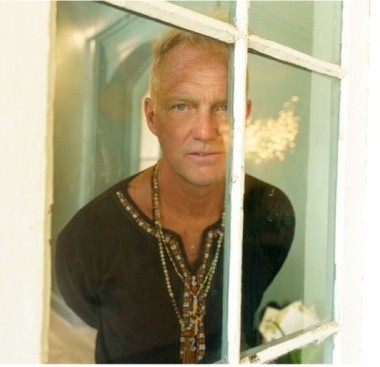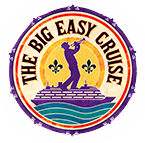Catchin’ Up with Anders Osborne

After Anders Osborne became an audience favorite on our inaugural BIG EASY CRUISE, we asked him to clear his schedule so that he could once again join us on the 2025 sailing.
Like Jon Cleary, Anders is an American and New Orleanian by choice—not by birth. Anders’ adopted city has now adopted him. He has been named the best guitarist by the local music journal OffBeat, and Guitar Player named him the “Poet laureate of Louisiana’s fertile roots music scene.”
With the exception of a few years working in Nashville as a staff songwriter, Anders has been in New Orleans for forty of his fifty-eight years. (And those years in Nashville certainly weren’t wasted—he cowrote a Number One country hit for north Louisiana-born Tim McGraw).
Anders is not only a great guitar player and songwriter, but he also thinks deeply about the music that has inspired him. With that in mind, we started by talking about the enduring influence of the blues.
The blues was created by and for a very small audience: Black people in and around the Deep South in the early 1900s. Why do you think it resonates so strongly with so many kids here and overseas whose life experiences are so different?
Anders: For myself and probably many others, the blues hit me as such an impactful way to convey emotion. It was wailing music – like so much other great folk music. Bluegrass, Irish, Scottish, and of course African music, they’re all wailing. Blues was and should be primal music. Not formalized like classical, but loose. That all taps into the way we originally played music. We felt happy, we felt miserable, and we’d spontaneously pick an instrument and play. Or maybe just sing.
Have you ever talked with Jon Cleary, who came from England, about what led you to settle in New Orleans?
Anders: Not specifically. I’ve talked to Jon a lot, though. We’re both transplants and there’s so much we have in common. Jon came here for musical reasons. He was making New Orleans music back in England. I came to New Orleans for fun with some friends. I discovered the music when I got here. Jon and I both faced the question of how we were going to approach this music that we were not born into. It wasn’t our grandfathers’ music. And talking about grandfathers, my grandfather was a sailor. He played the harmonica and bones. Both of those instruments have a deep West African connection. You realize that people have been exchanging music for hundreds, probably thousands of years. Sailors facilitated that.
When you first came to New Orleans, did you feel that you’d reached your celestial city? Did it feel like the place you were meant to be?
Anders: I came to Slidell on the north shore, and then I drove over the Pontchartrain Bridge into New Orleans. It was instant. I knew that was where I wanted to live. I was seventeen, maybe eighteen years old.
What’s your favorite thing to do in New Orleans?
Anders: I like to walk in City Park. I live near there and I walk five or ten miles a day in the park when I’m at home. I like to eat at the restaurants near the park. And I like to meditate, although, of course, I can do that anywhere … and I do. Even on-board a ship!
Most of our guests love New Orleans for its restaurants. Where are your favorite places to eat?
Anders: Everyone should go to Zasu, near City Park. The chef is a James Beard winner, and she’s won so many other awards. Ralph’s on the Park is another local favorite. Ralph is Ralph Brennan of the Brennan family of restaurateurs. And there’s some of the best Indian food I’ve ever had at Saffron, which is a couple of blocks from Tipitina’s.
Has living in New Orleans changed how you conceptualize music?
Anders: When you come to New Orleans as an outsider, you spend the first decade imitating. Hear, Feel, Repeat. I mean, just try to figure out brass band music! Figure out how everyone circles the campfire, playing together but still expressing themselves. And try to figure out the drumming, how it falls between straight rhythm and shuffles. But eventually you have to move beyond that. New Orleans taught me to play in the moment. Let the moment shift the path to where it was meant to go. Now that I’ve been in New Orleans for forty years, I’m looking for other ways to express myself without ever losing what the city gave me. I’ve internalized so much of what the local music is all about.
Had you ever worked on a cruise before the Big Easy Cruise?
Anders: Yes, I’d done six or seven other cruises before, but I have to say in complete honesty that last year’s Big Easy Cruise was by far the best. I enjoyed it so much. All the artists were my friends, and we were all so like-minded in our approach to music. The audiences got it right away. I saw a lot of artists I never get to see, even though we live close-by. We’d have coffee, lively conversation. Wonderful!
Did you feel that the audience had come to party along with you?
Anders: Absolutely! I’m not a natural extrovert, but it was great living with the audience. Everyone was so respectful, and of course congratulations are never hard to deal with!
So, it’s like a family reunion?
Anders: Exactly!
- Colin Escott © 2024
Born in England, Colin wrote the definitive biography of Hank Williams, subsequently adapted into a movie starring Tom Hiddleston. He also wrote Good Rockin’ Tonight—Sun Records and the Birth of Rock ‘n’ Roll. His work has appeared in many magazines, and he has won two Grammys for historical sets. He also cowrote the hit Broadway show Million Dollar Quartet.
